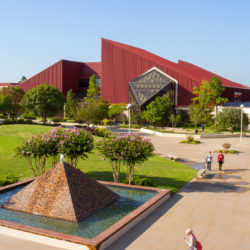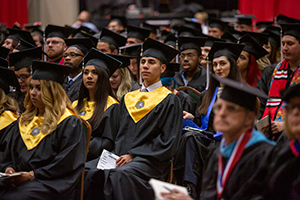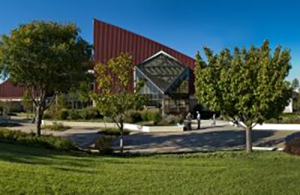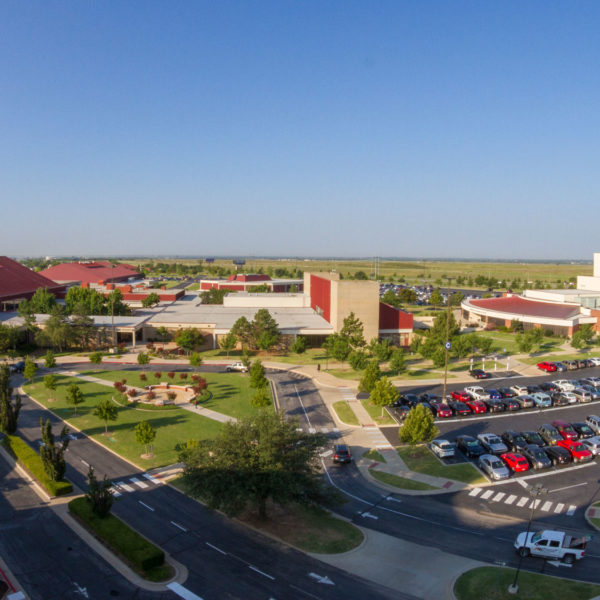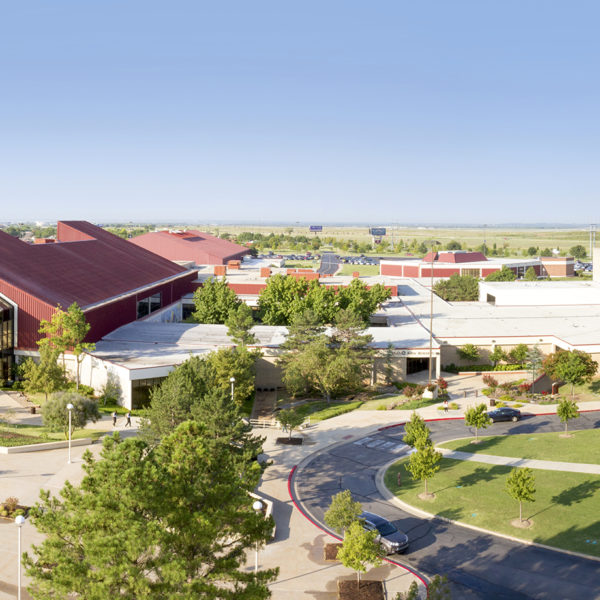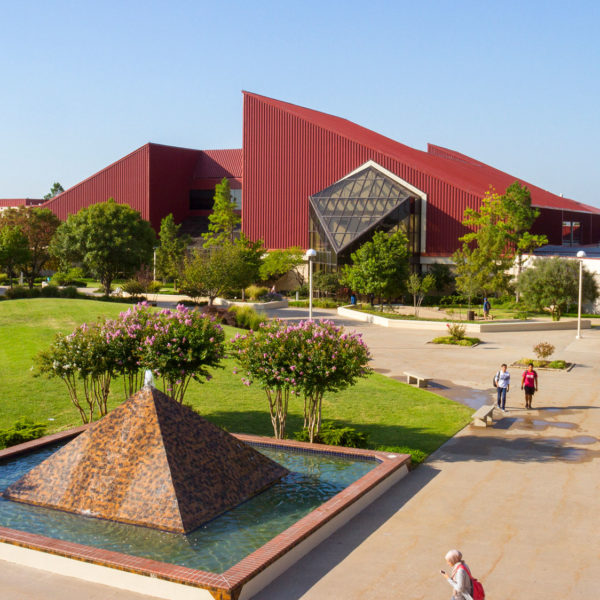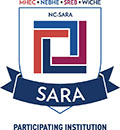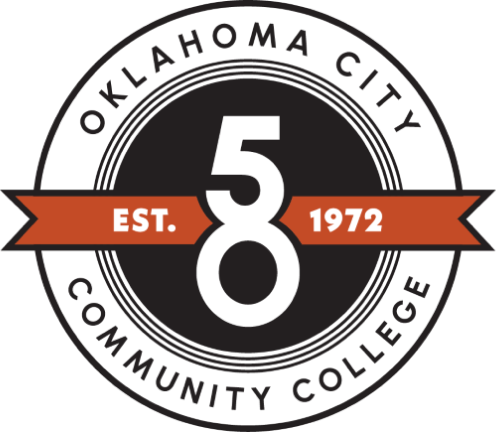Allied Health
AHP 1013 – Medical Terminology
After studying the root words, prefixes, and suffixes from which medical terms evolve, the student will correctly spell medical terms, define terms commonly used in medical fields, and determine the meaning of unfamiliar medical terms.
Prerequisites: ENGL 0203, adequate placement score, or by meeting determined placement measures
Credits: 3
Biological Science
BIO 1314 – Human Anatomy and Physiology I
Through a systematic study of the structure and function of the human body, its cells, tissues, organs and systems, the student will identify and describe basic anatomical structures and fundamental physiological processes that occur in health and disease for the major body systems. Laboratory work which requires dissection is an integral and required part of the course.
Prerequisites: ENGL 0203 or adequate placement score or by meeting determined placement measures; MATH 0103 or adequate math placement. An adequate biology placement test score or BIO 0123 or a college-level biological science class.
Credits: 4
BIO 1414 – Human Anatomy and Physiology II
With Human Anatomy & Physiology I as a foundation, the student will advance his or her study of the structure and function of the human body and will identify and describe more detailed anatomical structures and more comprehensive physiological processes that occur in health through a systematic survey of the major body systems. Laboratory work which requires dissection is an integral and required part of the course.
Prerequisites: BIO 1314 with a grade of “C” or higher
Credits: 4
Chemistry
CHEM 1123 – Survey of General, Organic, and Biochemistry
This course is designed for nursing and allied health programs which do not require General Chemistry I for science majors. This course is also appropriate for individuals interested in a general overview of chemistry. The course covers selected topics in general chemistry including unit conversions, atomic structure, chemical bonding, acids, bases, pH, chemical equilibrium, electrolytes, and properties of solutions. The course also introduces topics from organic and biochemistry. The relationship between chemical principles and human health is emphasized throughout the course.
Prerequisites: ENGL 0203, adequate placement score, or by meeting determined placement measures; MATH 0313 or adequate math placement.
Credits: 3
Clinical Research Coordinator
CRC 1103 – Introduction to Clinical Research
The student will demonstrate knowledge of the history of human subject research, evolution of rules protecting human subjects, roles of the clinical research teams, clinical trial phases, and responsibilities of clinical research organizations.
Prerequisites: ENGL 0203, adequate placement score, or by meeting determined placement measures; Admission to the CRC Program
Credits: 3
CRC 1112 – Vital Signs and Venipuncture
The student will 1) successfully measure blood pressure, pulse rate, and temperature, 2) draw intravenous blood, 3) perform human tissue and fluid storage procedures, and 4) utilize universal precautions for handling biological materials.
Prerequisites: BIO 1414; Admission to the CRC Program
Credits: 2
CRC 1203 – Medical Ethics and Client Care
The student will be able to describe the fundamentals of ethical principles involving human research subjects, understand informed consent and the role of the Internal Review Board, and identify vulnerable populations.
Prerequisites: CRC 1103; Admission to the CRC Program
Credits: 3
CRC 1303 – Clinical Trials and Research Regulations
The student will receive an overview of federal and international guidelines governing clinical research and drug trials, including Good Clinical Practices and International Council on Harmonization guidelines. An emphasis will be placed on understanding of research organization compliance, responsibilities of the Internal Review Board and the Health Insurance Portability and Accountability Act (HIPAA). The student will identify and complete required regulatory forms, define human subject protection guidelines, compare federal versus international guidelines for clinical research and discuss conflict of interest issues.
Prerequisites: CRC 1103; Admission to the CRC Program
Credits: 3
CRC 1503 – Clinical Trials and Research Internship I
Students will shadow clinical research teams for four weeks at a private or university clinical research facility. Topics learned in the classroom will be demonstrated in an actual clinical research setting, giving the student exposure to a real-world setting while learning practical applications.
Prerequisites: CRC 1203; CRC 1303; Admission to the CRC Program
Credits: 3
CRC 2003 – Clinical Database Applications
The student will demonstrate mastery of the concepts of clinical research data management systems, quality assurance, data confidentiality and security, accurate preparation of case reports.
Prerequisites: CRC 1103; Admission to the CRC Program
Credits: 3
CRC 2103 – Clinical Research Design
Students will acquire a basic knowledge of research design methodologies, data organization and presentation, participant eligibility, adverse event documentation, site visit and audit preparation, and budget design.
Prerequisites: CRC 1203; CRC 1303; Admission to the CRC Program
Credits: 3
CRC 2113 – Clinical Research Site Management
The student will acquire a basic knowledge of research site organization, operation and management. The student will be learn the process involved in grant applications, study initiation, documentation requirements, and site evaluations. Emphasis will be placed on defining process flow and interactions with Institutional Review Boards, sponsors, regulators, investigators, and the community.
Prerequisites: CRC 2103; Admission to the CRC Program
Credits: 3
CRC 2203 – Pathophysiology
The student will utilize critical thinking models to understand the dynamic aspects of human health and disease processes. The student will develop a foundational knowledge of the pathogenesis and clinical manifestation of disease in order to work effectively with subject data and communicate with other clinical research professionals.
Prerequisites: CHEM 1123; BIO 1414; AHP 1013; Admission to the CRC Program
Credits: 3
CRC 2213 – Pharmacology for Clinical Research
The student will correctly spell names of major drugs, place major drugs into correct therapeutic categories and identify indications, side effects, and trade and generic names. The student will identify and discuss the purpose of nutritional products, blood modifiers, hormones, diuretics, diabetes medications, cardiovascular agents, respiratory drugs, and gastrointestinal agents.
Prerequisites: CHEM 1123; BIO 1414; Admission to the CRC Program
Credits: 3
CRC 2313 – Clinical Protocol Design
Through study, discussion, and classroom activities the student will identify different research designs, master the rules for writing protocols, understand ethical issues involved in research protocol design, and develop the skills to design data collection forms.
Prerequisites: CRC 2103; CRC 2113; Admission to the CRC Program
Credits: 3
Communications
COM 1123 – Interpersonal Communications
The student will be able to identify why certain things happen as they do when two or more individuals come together to communicate for a specific purpose. The student must attest to his or her ability to understand the principles of interpersonal communication with emphasis on dyads, small groups, analysis of communication models and nonverbal communication, applying understanding to the major types of interpersonal communication problems in the work environment and in daily human relations.
Prerequisites: ENGL 0203, adequate placement score, or by meeting determined placement measures
Credits: 3
English
ENGL 1113 – English Composition I
The student will write well-developed compositions which demonstrate the principles of unity, coherence, and organization and which contain specific details and vivid language. The students will locate library material and incorporate researched materials into compositions.
Prerequisites: ENGL 0203, adequate placement score, or by meeting determined placement measures
Credits: 3
ENGL 1233 – Technical Writing for the Workplace
This course will expose students to technical communication and will allow students to practice professional methods of writing in the workplace. In addition to constructing technical documents appropriate for use in professional and job-related environments, students will learn about rhetorical methods for presenting technical information in ethical and formal prose designed for clear and effective communication with employers and colleagues. This course will equip the student with written and oral communication skills necessary for sharing information and discussing content in professional settings; developing an awareness of technical genres; utilizing technological platforms for constructing documents; using visuals and graphics professionally; writing professional correspondence; constructing reports; designing project proposals; and composing instructions. This course satisfies the computer proficiency requirement.
Prerequisites: ENGL 1113 or ENGL 1103; MATH 0203 College Prep Math II or adequate Math Placement Test Score
Credits: 3
History
HIST 1483 – U.S. History to 1877
After analyzing events in American history from 1400 to 1877 in such areas as revolution, geographic and social mobility, political reform, government precedents and war, students will be able to identify patterns of present day mobility, describe governmental operations in their society and help resolve conflict in society based on the student’s search for change, precedents, and conflict in the American past. A general education requirement.
Prerequisites: ENGL 0203, adequate placement score, or by meeting determined placement measures
Credits: 3
HIST 1493 – U.S. History 1877 to Present
After analyzing events in American history from 1877 to the present in such areas as geographic and social mobility, political reform, government precedents and war, students will be able to identify patterns of present day mobility, describe governmental operations in their society and help resolve conflict in society based on the student’s search for change, precedents, and conflict in the American past. A general education requirement.
Prerequisites: ENGL 0203, adequate placement score, or by meeting determined placement measures
Credits: 3
Mathematics
MATH 2013 – Introduction to Statistics
The student will solve problems applying the concepts of random sampling, elementary probability, testing hypotheses, descriptive measures, chi-square, regression and correlation, and analysis of variance.
Prerequisites: MATH 0313 or adequate math placement; ENGL 0203, adequate placement score, or by meeting determined placement measures
Credits: 3
Political Science
POLSC 1113 – American Federal Government
A study of the principles, structure, processes and functions of the United States federal government.
Prerequisites: ENGL 0203, adequate placement score, or by meeting determined placement measures
Credits: 3
Success in College and Life
SCL 1001 – Success in College and Life
Students will learn best practices for academic, career, and personal success. Students will discover their individual strengths, interests, and values to create a personalized plan; select and utilize resources that are applicable to their growth and success; and engage as active and responsible members of the academic community. This course should be taken during a student’s first semester of college work at Oklahoma City Community College and is a required course in degree plans to satisfy the Life Skills requirement.
Prerequisites: ENGL 0106 or adequate reading/writing assessment scores
Credits: 1
